Notizie su una pesca equa, mari sani e comunità di pescatori vivaci
Consultazione pubblica sulla revisione della direttiva quadro sulla strategia marina
La Commissione europea ha aperto una consultazione pubblica in vista della prossima revisione della Direttiva quadro sulla strategia marina (MSFD). La revisione mira a rafforzare la protezione degli ecosistemi marini, a semplificare l'attuazione negli Stati membri e a riflettere meglio le realtà operative in mare. I link alla valutazione della MSFD e alla sua sintesi sono disponibili qui.
È importante notare che il processo di revisione sarà strettamente allineato con lo sviluppo dell'European Ocean Act, con l'obiettivo di migliorare la coerenza delle politiche e promuovere un approccio più integrato alla governance degli oceani e alla gestione sostenibile delle risorse marine.
I pescatori, le comunità costiere e un'ampia gamma di soggetti interessati all'ambiente marino sono fortemente incoraggiati a contribuire alla consultazione e a garantire che l'esperienza pratica acquisita in acqua si rifletta adeguatamente nella futura politica dell'UE.
Scadenza per i contributi: 9 marzo 2026
28/10 Progredire con l'agenda Make Fishing Fair
 Il Presidente di LIFE Gwen Pennarun e il Segretariato, insieme alla nostra organizzazione partner Blue Ventures, hanno incontrato Costas Kadis e il suo Gabinetto per far avanzare le discussioni nell'ambito del Fare la fiera della pesca ordine del giorno. Lo scambio si è concentrato sull'individuazione di azioni concrete di follow-up per il Fare una tabella di marcia per la pesca equa e nel sostenere l'inclusione di un piano d'azione specifico per la pesca su piccola scala nell'ambito del prossimo Ocean Act dell'UE.
Il Presidente di LIFE Gwen Pennarun e il Segretariato, insieme alla nostra organizzazione partner Blue Ventures, hanno incontrato Costas Kadis e il suo Gabinetto per far avanzare le discussioni nell'ambito del Fare la fiera della pesca ordine del giorno. Lo scambio si è concentrato sull'individuazione di azioni concrete di follow-up per il Fare una tabella di marcia per la pesca equa e nel sostenere l'inclusione di un piano d'azione specifico per la pesca su piccola scala nell'ambito del prossimo Ocean Act dell'UE.
Questo incontro ha fatto seguito alla mobilitazione tenutasi a Bruxelles nel novembre 2025, dove 50 pescatori artigianali provenienti da 16 Stati Membri, insieme a responsabili politici, funzionari pubblici, organizzazioni della società civile e operatori del settore, si sono riuniti per chiedere politiche di pesca più eque e il riconoscimento della pesca su piccola scala a livello europeo. In quell'occasione, il Commissario Kadis si è impegnato pubblicamente a fare della pesca su piccola scala una priorità del suo mandato, come risulta dal Patto oceanico europeo.
Durante le discussioni di follow-up, il team di Make Fishing Fair - composto da personale LIFE e Blue Ventures - ha ribadito la necessità di tradurre questi impegni politici in azioni politiche concrete. In particolare, abbiamo chiesto che un piano d'azione dedicato alla pesca su piccola scala sia incluso nell'Ocean Act dell'UE come obiettivo chiave, garantendo obiettivi chiari, scadenze e risultati misurabili per le comunità di pescatori.
Se da un lato il Commissario Kadis si è dimostrato aperto alle nostre proposte e si è impegnato in modo costruttivo con le nostre richieste, dall'altro le discussioni hanno messo in evidenza la sfida persistente delle competenze condivise tra le istituzioni dell'UE e gli Stati membri. Senza un'efficace attuazione a livello nazionale, c'è il rischio concreto che i progressi si arrestino e che permanga l'attuale status quo.
LIFE rimane determinata a continuare questo lavoro, sia a livello di UE che di Stati membri, per garantire che gli impegni assunti nell'ambito del Patto per l'Oceano portino a miglioramenti tangibili per i pescatori su piccola scala e contribuiscano a una politica europea della pesca più equa e sostenibile.
11/12 Una nuova visione per una pesca equa e a basso impatto in Europa
LIFE e Mari a rischio hanno pubblicato Una visione per una pesca equa e a basso impatto in Europa, Il documento, elaborato da un gruppo multidisciplinare di parti interessate, riflette la realtà delle comunità di pescatori e definisce una direzione condivisa per il futuro della pesca europea. Il documento chiede una giusta transizione verso pratiche di pesca a basso impatto che ripristinino gli stock ittici, sostengano i mezzi di sussistenza costieri e garantiscano un accesso equo alle risorse.
La pubblicazione è stata presentata ufficialmente al Ripensare la pesca sotto la guida dell'eurodeputato Thomas Bajada (S & D) e facilitato dal Segretario esecutivo di LIFE Marta Cavallé e dal Direttore di Seas At Risk Marine Tobias Troll. L'evento ha riunito pescatori, scienziati, organizzazioni della società civile e responsabili politici dell'UE per discutere i messaggi chiave della visione e le implicazioni politiche.
La testimonianza di André Dias, membro di LIFE dell'Algarve, in Portogallo, ha evidenziato le sfide quotidiane affrontate dai pescatori su piccola scala, mentre i contributi scientifici di Didier Gascuel e Cristina Brice-Pita hanno delineato i cambiamenti culturali, ecologici e di governance necessari per realizzare la transizione indicata nel documento.
La discussione si è conclusa con le riflessioni della DG Mare su come la visione possa informare il lavoro verso una prospettiva 2040 per la pesca dell'UE e lo sviluppo di una “economia blu rigenerativa”.
LIFE e Seas at Risk continueranno a diffondere questo documento e a presentarlo alle parti interessate e ai decisori, soprattutto per orientare la nuova Visione 2040 che sarà prodotta dalla Commissione Europea/DG Mare nei prossimi mesi.
10/12 Assemblea generale di LIFE: Leadership, priorità e nuove iniziative
LIFE ha tenuto la sua Assemblea generale con una forte partecipazione da parte di tutti i membri, che riflette la diversità e l'impegno del network. Hanno partecipato membri effettivi e associati, osservatori e personale LIFE.
L'Assemblea è stata aperta formalmente da Gwen Pennarun, che è stata rieletta Presidente di LIFE, ribadendo la fiducia dei membri nella sua leadership e nel suo mandato.
L'Assemblea Generale ha inoltre discusso le principali iniziative strategiche che daranno forma al lavoro di LIFE nel prossimo periodo. Tra queste, l'istituzione di un sistema di garanzia partecipativa per la pesca su piccola scala, volto a rafforzare il riconoscimento, la fiducia e il valore dei produttori su piccola scala, e il lancio di una rete giovanile all'interno di LIFE, progettata per coinvolgere i giovani pescatori e i leader emergenti del settore della pesca e per sostenere il rinnovamento generazionale nel settore.
Guardando al futuro, i membri hanno contribuito attivamente alla definizione delle priorità di LIFE per il 2026, identificando le sfide condivise e le aree di intervento. Tra i temi principali figurano la definizione e il riconoscimento della pesca su piccola scala, l'accesso alle risorse e alle opportunità di pesca, la pianificazione dello spazio marittimo, l'impatto dei cambiamenti climatici, il rinnovamento generazionale e la necessità di documentare e comunicare meglio le realtà delle comunità di pesca su piccola scala.
L'Assemblea generale ha riaffermato l'impegno collettivo di LIFE a rafforzare la voce dei piccoli pescatori e a promuovere politiche di pesca eque e sostenibili in tutta Europa.
5/12 Ripristino degli stock ittici: La scienza deve garantire il recupero
La ricostituzione degli stock ittici e degli ecosistemi marini europei deve diventare una priorità politica urgente. Per LIFE, ciò inizia con una gestione della pesca che applichi realmente le migliori conoscenze scientifiche disponibili, come richiesto dalla Politica Comune della Pesca (PCP).
Nonostante il chiaro obbligo della PCP di ricostruire gli stock al di sopra dei livelli di rendimento massimo sostenibile (MSY), la gestione della pesca dell'UE è stata ripetutamente insufficiente. Un problema fondamentale risiede nel modo in cui i pareri scientifici del CIEM vengono prodotti e applicati. I punti di riferimento biologici sono stati troppo spesso trattati come obiettivi piuttosto che come misure di salvaguardia, mentre le importanti dinamiche dell'ecosistema non sono ancora sufficientemente riflesse nelle valutazioni degli stock. Ciò ha contribuito al persistere di bassi livelli di biomassa e al ripetuto declino degli stock nelle acque europee.
Attraverso uno scambio di lettere con la DG Mare, LIFE chiede di rivedere le modalità di elaborazione e utilizzo dei pareri del CIEM, di rafforzare le valutazioni basate sugli ecosistemi e di elaborare piani di gestione che sostengano attivamente la ricostituzione degli stock. La riforma del quadro normativo UE-ICES è un passo necessario per ripristinare l'abbondanza, rafforzare la pesca costiera e garantire la sostenibilità a lungo termine.
LIFE ha sollevato queste preoccupazioni direttamente con la Commissione europea ed è pronta a contribuire a riforme che possano garantire mari sani, stock ittici resistenti e mezzi di sussistenza costieri sostenibili.
10/12 Invito congiunto a fornire consulenza sulla pesca orientata al recupero
In vista del Consiglio della pesca del 2025, LIFE si è unita ai pescatori ricreativi e alle ONG ambientaliste per sollecitare la Commissione europea a ripensare il modo in cui vengono richiesti e utilizzati i pareri scientifici sulle possibilità di pesca. In una lettera congiunta al Commissario Kadis, chiediamo che i limiti di pesca e la scienza sottostante siano pienamente in linea con il diritto dell'UE e con gli obiettivi del Patto europeo per gli oceani.
Con il declino di numerosi stock ittici un tempo abbondanti nei bacini marini europei, LIFE sottolinea la necessità di pareri scientifici precauzionali e basati sugli ecosistemi che diano priorità alla ricostituzione degli stock. L'imminente rinnovo degli accordi della Commissione con il CIEM offre un'opportunità fondamentale per garantire che i futuri pareri sostengano gli sforzi di ricostituzione e un maggiore coinvolgimento delle parti interessate.
LIFE è pronta a collaborare con la Commissione per contribuire a promuovere una pesca sostenibile, ecosistemi marini sani e comunità costiere resilienti.
11/12 LIFE si schiera con i pescatori francesi per chiedere una ripartizione più equa del tonno rosso
Insieme alle organizzazioni francesi di piccola pesca, ci siamo rivolti al ministro francese del Mare e della Pesca, Catherine Chabaud, per chiedere una ripartizione più equa della quota di tonno rosso recentemente aumentata.
Pur accogliendo con favore la conferma della ripresa del tonno rosso del Mediterraneo e il conseguente aumento della quota per il 2026-2028, sottolineiamo che l'assegnazione basata esclusivamente sulle catture storiche continua a escludere la maggior parte dei pescatori su piccola scala e a basso impatto.
Chiediamo un adeguamento delle regole di assegnazione in modo che le flotte artigianali, che svolgono un ruolo fondamentale per le comunità costiere e la gestione dell'ambiente marino, possano accedere a questa risorsa vitale. Anche un riequilibrio limitato rafforzerebbe la pesca su piccola scala, sostenendo al contempo i sistemi di governance tradizionali come quello dei Prud'homies.
12-14/1 Riunione strategica del team LIFE
Il team LIFE si è riunito per una riunione strategica di più giorni per fare il punto sui recenti risultati e identificare le priorità strategiche per il prossimo periodo.
L'incontro ha offerto un'importante opportunità per rafforzare la coesione interna, garantire l'allineamento strategico e tracciare collettivamente la strada da seguire. Gli scambi hanno confermato la nostra comune determinazione ad amplificare ulteriormente la rappresentanza dei pescatori a basso impatto a livello europeo e a continuare a promuovere una governance della pesca più equa e sostenibile.
10/1 Attuazione del regolamento UE sul controllo della pesca
Il 10 gennaio sono entrate in vigore le principali disposizioni del regolamento UE riveduto sul controllo della pesca per i pescherecci di lunghezza superiore a 12 metri. Tutti i pescherecci di questo tipo saranno tracciati e saranno richiesti registri elettronici per registrare i dati di cattura, comprese le catture accessorie di specie sensibili. Si applicheranno flussi di lavoro digitali, non cartacei e tracciabili per i prodotti della pesca per combattere la pesca illegale, non dichiarata e non regolamentata (INN).
Anche se le nuove disposizioni non si applicheranno alle imbarcazioni di piccole dimensioni (sotto i 12 metri) fino al 2028, I pescatori di tutta la Spagna si sono mobilitati con manifestazioni e uno sciopero generale organizzato dal settore della pesca costiera. Queste azioni riflettono la preoccupazione che alcuni elementi del regolamento, nella sua attuale formulazione, possano portare a requisiti amministrativi eccessivi, a un aumento della burocrazia e a potenziali implicazioni per la sicurezza in mare, senza produrre benefici proporzionali in termini di controllo efficace della pesca.
21-23/1 Riunioni delle parti interessate con il CIEM in merito alla consulenza scientifica
Durante gli incontri annuali tra il CIEM e le parti interessate dei consigli consultivi si sono svolte ampie discussioni sul processo di consulenza scientifica. La Commissione europea ha annunciato che finanzierà un progetto specifico per il Baltico al fine di sviluppare una consulenza per la ricostituzione del bacino marino a causa del cattivo stato della maggior parte degli stock ittici. Il CIEM ha presentato informazioni che dimostrano che un numero maggiore di stock, rispetto al passato, è in pessime condizioni, con livelli di biomassa inferiori alla soglia di riferimento più bassa. Per il futuro si sta cercando di sviluppare e integrare i consigli sugli stock ittici basati sugli ecosistemi e sul clima, anche se non c'è ancora un consenso scientifico sul loro aspetto. L'attuale sistema di consulenza è stato particolarmente inefficace nel contribuire al recupero degli stock che sono crollati o che hanno subito un grave declino, anche se il CIEM rimane fiducioso che il suo processo di consulenza funzioni ancora bene quando gli stock sono in buone condizioni, anche se il cambiamento climatico e i cambiamenti nella produttività degli stock aggiungono un livello di incertezza.
26/1 Consiglio Agricoltura e Pesca: Cipro assume la presidenza dell'UE e presenta il programma di lavoro di 6 mesi e le priorità
Secondo Maria Panayiotou, Ministro dell'Agricoltura, dello Sviluppo rurale e dell'Ambiente della Repubblica di Cipro: “L'agricoltura, la pesca e l'acquacoltura sono al centro delle priorità della Presidenza cipriota. Il nostro obiettivo è rafforzare la competitività, la sostenibilità e l'attrattiva del settore agricolo e ittico europeo”.
Ha sottolineato che l'agricoltura e la pesca sono motori economici vitali che sostengono le comunità rurali e costiere europee, assicurano un approvvigionamento stabile di alimenti sicuri e di alta qualità per tutti i cittadini e sostengono l'autonomia strategica, la gestione ambientale e la resilienza delle regioni locali. Tra le priorità: promuovere un settore della produzione primaria equo, competitivo e sostenibile, portare avanti un approccio globale alla futura politica agricola comune (PAC) e alla politica comune della pesca (PCP). È stato inoltre menzionato il sostegno agli agricoltori e ai pescatori, che devono affrontare gli impatti climatici, le perturbazioni del mercato, i rischi per la salute degli animali e delle piante e l'aumento dei costi di produzione, tutti fattori che minacciano la stabilità e la redditività di questi settori critici.
26-27/1 I pescatori su piccola scala della Francia mediterranea incontrano i decisori dell'UE
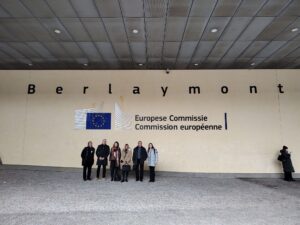 Una delegazione dei Prud'homies della pesca della Francia mediterranea si è recata a Bruxelles per discutere con il Commissario Costas Kadis e i membri del Parlamento europeo. Gli incontri hanno affrontato le pressanti sfide che la pesca su piccola scala e le comunità costiere devono affrontare.
Una delegazione dei Prud'homies della pesca della Francia mediterranea si è recata a Bruxelles per discutere con il Commissario Costas Kadis e i membri del Parlamento europeo. Gli incontri hanno affrontato le pressanti sfide che la pesca su piccola scala e le comunità costiere devono affrontare.
Al centro degli scambi c'è stata la richiesta di un riconoscimento ufficiale dei Prud'homies in quanto strutture di lunga data con una comprovata esperienza di buon governo a sostegno di pratiche di pesca a basso impatto. Altre priorità sono state la salvaguardia della polivalenza della pesca, la garanzia di un accesso equo alle opportunità di pesca e la riduzione degli oneri normativi e amministrativi a carico degli operatori su piccola scala.
29/1 Consultazione del Comitato delle regioni sul Patto oceanico europeo
LIFE ha partecipato a una tavola rotonda convocata dal Comitato europeo delle regioni sul parere intitolato “La politica comune della pesca, il Patto europeo per gli oceani e la politica marittima e di acquacoltura dell'Unione nell'ambito del Fondo di partenariato nazionale e regionale”.”, ospitato dal relatore Thibaut Guignard.
La discussione ha riunito rappresentanti delle autorità regionali, dei settori della pesca e dell'acquacoltura e delle organizzazioni non governative. Molti partecipanti hanno sottolineato l'importanza di stanziare finanziamenti dedicati agli operatori su piccola scala - compresi i pescatori, i produttori di molluschi e le loro organizzazioni rappresentative - al fine di affrontare lo stato di invecchiamento della flotta, migliorare la competitività, sostenere il ricambio generazionale e migliorare l'accesso agli strumenti finanziari pubblici. Il ripristino degli stock ittici è stato inoltre evidenziato come un prerequisito fondamentale per la resilienza a lungo termine del settore. LIFE ha colto l'occasione per chiedere che un Piano d'azione sulla piccola pesca sia parte integrante dell'Ocean Act, come ultima possibilità per rivitalizzare il settore della piccola pesca, che rischia di scomparire completamente nei prossimi anni.
Progetto ghiozzo rotondo
È proseguito il lavoro di valutazione dei risultati della pesca di prova condotta dai membri di LIFE insieme agli scienziati. Sono stati progettati e sperimentati nuovi attrezzi selettivi e sono state valutate le catture di diversi attrezzi. Inoltre, sono state condotte interviste che informeranno uno studio di business case che sarà compilato nel corso del 2026. Parallelamente alle altre attività si sta svolgendo un lavoro politico che riassume le barriere che impediscono alla pesca del ghiozzo, una specie invasiva, di espandersi in tutto il Baltico. Infine, acquirenti di pesce come trasformatori, ristoratori e cucine di enti locali hanno utilizzato e testato il prodotto.
In arrivo
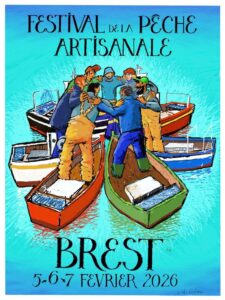
5-7/2 Brest, Francia : Festival della pesca artigianale
17/2 Bruxelles, Belgio: Seconda conferenza di alto livello sulla transizione energetica per il settore della pesca e dell'acquacoltura dell'UE
Rassegna stampa
Un nuovo importante rapporto su “Valutare l'impatto delle importazioni di prodotti ittici sull'autosufficienza dell'UE” è stato pubblicato dalla Commissione Pech del Parlamento Europeo
I pescatori della Norvegia settentrionale sono in attesa di decisioni da parte delle autorità in merito a l'apertura di una pesca al salmone rosa invasivo del Pacifico.
Un tribunale francese ha confermato un appello delle organizzazioni di piccoli pescatori in Bretagna che si basa sulla definizione di una rete a strascico a quattro porte come pesca demersale o pelagica:
“Pesca a strascico a quattro pannelli” in Bretagna: ricorso per motivi di diritto presentato dal Comitato regionale della pesca - PR a cura dei membri di LIFE Association des Ligneurs de la Pointe de Bretagne
I proprietari di piccole imbarcazioni islandesi chiedono Divieto di pesca a strascico di coppie di capelin
Polpo in fiore fuori dal Regno Unito sud-occidentale Segnali di riscaldamento dei mari

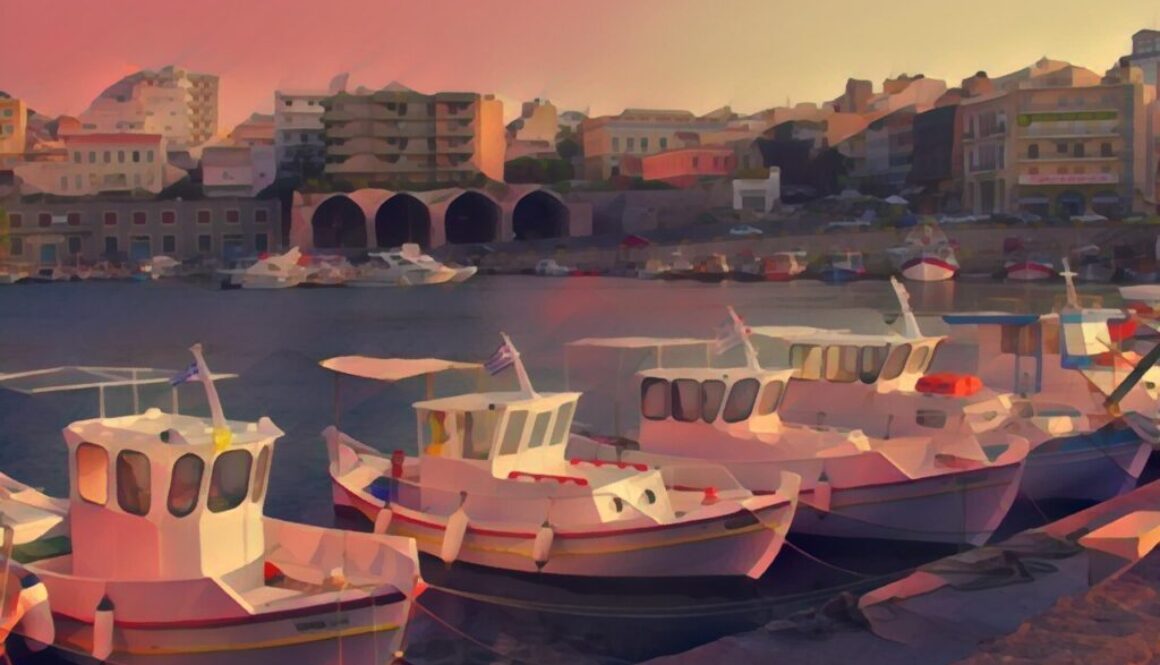
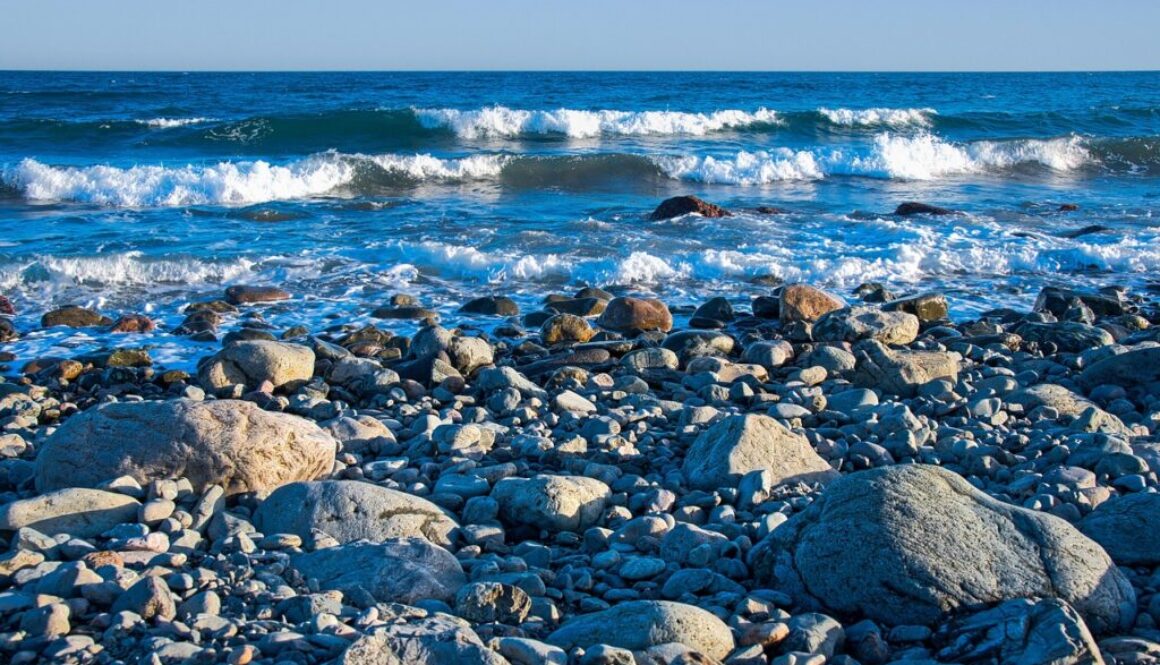
 Il Presidente di LIFE Gwen Pennarun e il Segretariato, insieme alla nostra organizzazione partner Blue Ventures, hanno incontrato Costas Kadis e il suo Gabinetto per far avanzare le discussioni nell'ambito del
Il Presidente di LIFE Gwen Pennarun e il Segretariato, insieme alla nostra organizzazione partner Blue Ventures, hanno incontrato Costas Kadis e il suo Gabinetto per far avanzare le discussioni nell'ambito del  Una delegazione dei Prud'homies della pesca della Francia mediterranea si è recata a Bruxelles per discutere con il Commissario Costas Kadis e i membri del Parlamento europeo. Gli incontri hanno affrontato le pressanti sfide che la pesca su piccola scala e le comunità costiere devono affrontare.
Una delegazione dei Prud'homies della pesca della Francia mediterranea si è recata a Bruxelles per discutere con il Commissario Costas Kadis e i membri del Parlamento europeo. Gli incontri hanno affrontato le pressanti sfide che la pesca su piccola scala e le comunità costiere devono affrontare.
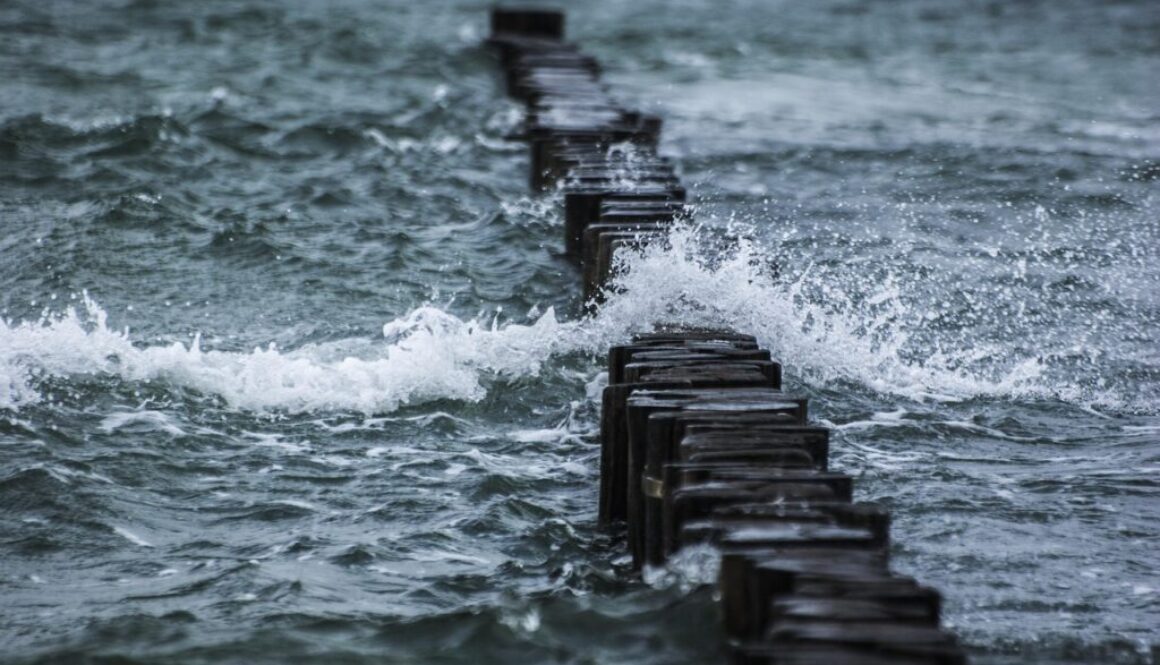
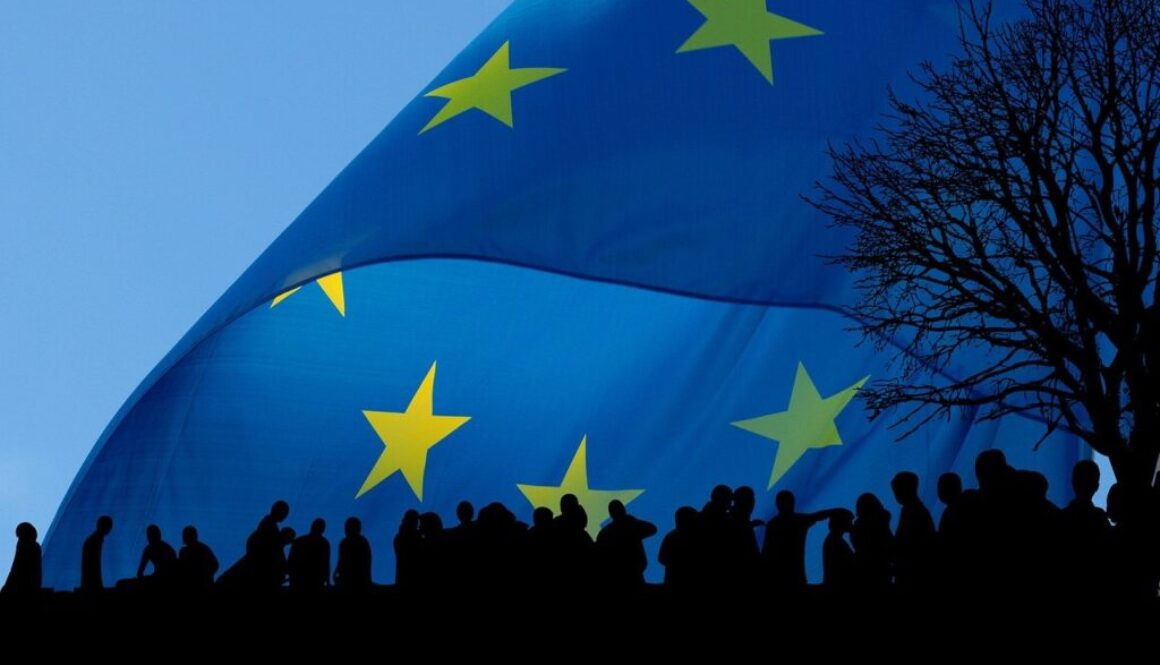
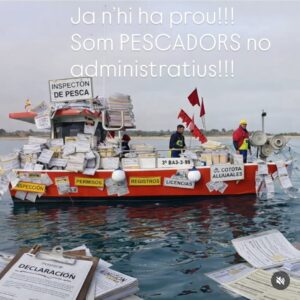
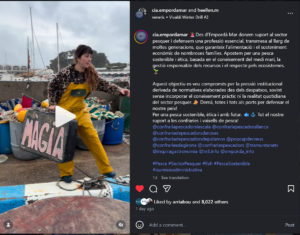
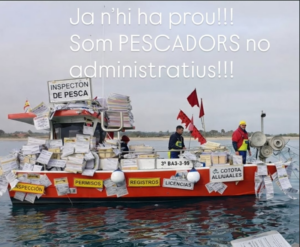



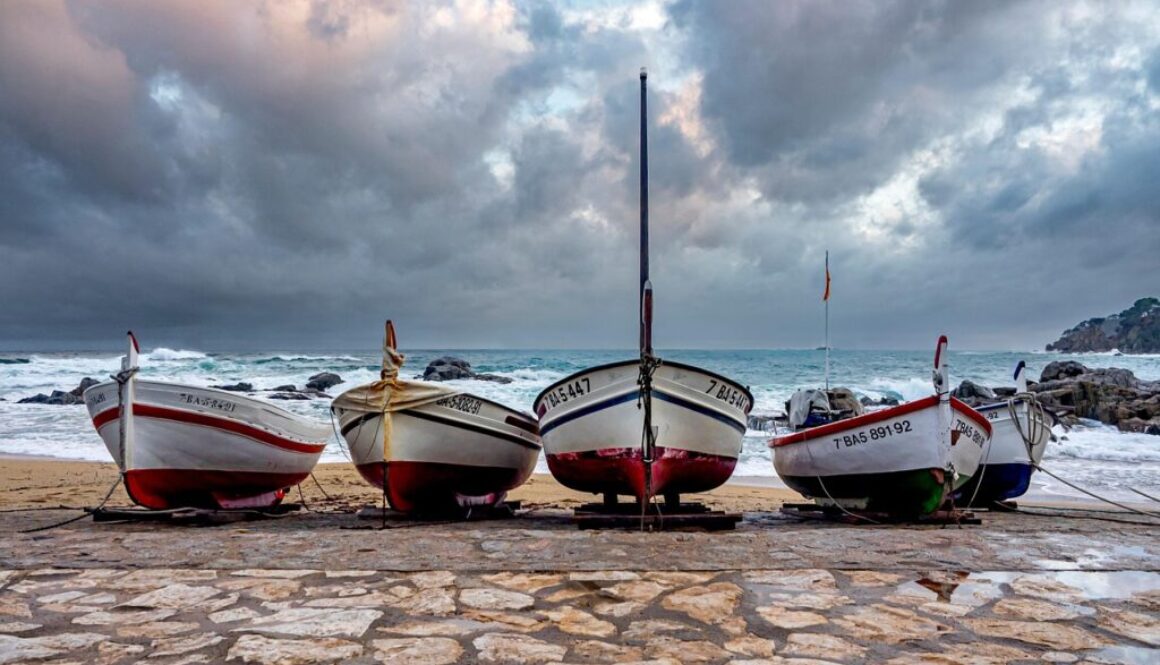

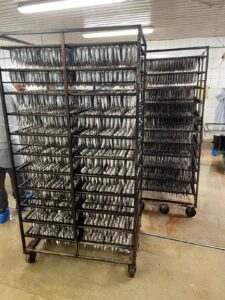
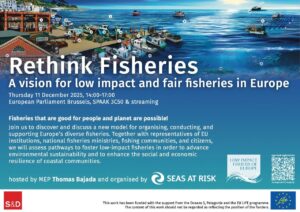


 LIFE ha partecipato attivamente all'edizione di quest'anno
LIFE ha partecipato attivamente all'edizione di quest'anno  22/10 Membri di LIFE esclusi dal mercato perché privi di certificazione MSC
22/10 Membri di LIFE esclusi dal mercato perché privi di certificazione MSC